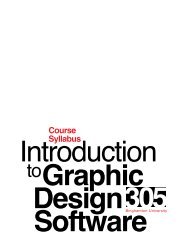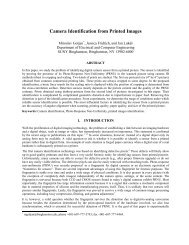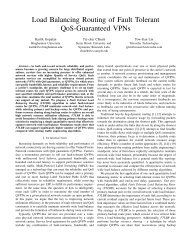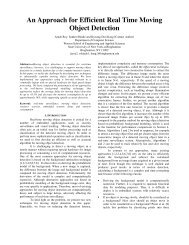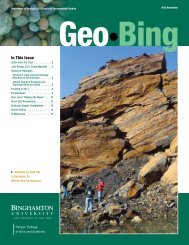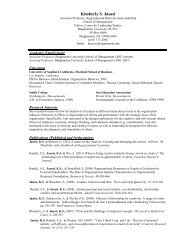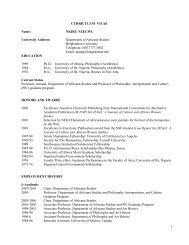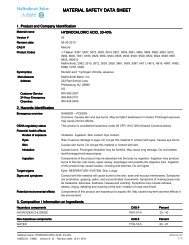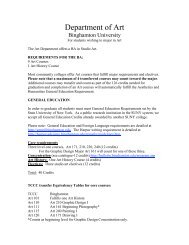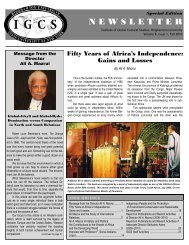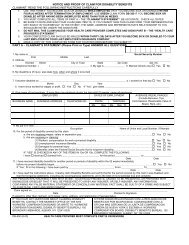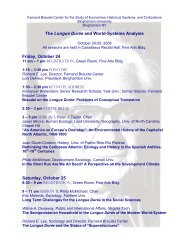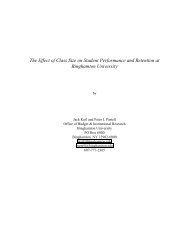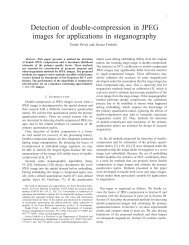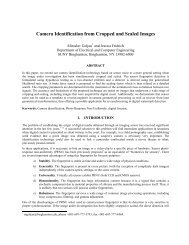History - Binghamton University
History - Binghamton University
History - Binghamton University
You also want an ePaper? Increase the reach of your titles
YUMPU automatically turns print PDFs into web optimized ePapers that Google loves.
ADVISER AND GUIDANCE<br />
COMMITTEE<br />
Students are advised by staff or a faculty<br />
member in their field of concentration during<br />
their first semester in the graduate program.<br />
Before the beginning of the second semester,<br />
the student selects an appropriate member of<br />
the faculty as principal adviser (sponsor) and<br />
chair of a guidance committee. The student in<br />
consultation with the principal adviser solicits<br />
two additional faculty members to serve on the<br />
guidance committee. The chairperson of the<br />
guidance committee, with the assistance of<br />
colleagues and the vice chairperson for graduate<br />
studies, aids students in their choices of courses,<br />
advises them on the fulfillment of other<br />
academic requirements and in general guides<br />
them through the graduate program. Normally,<br />
the guidance committee forms the core of the<br />
student’s oral comprehensive examination<br />
committee. In most cases, too, a student’s<br />
guidance committee eventually serves as a<br />
three-person dissertation committee.<br />
Normally, full-time matriculated students<br />
take three courses per semester. A student’s<br />
coursework should be closely correlated with<br />
the proposed major and minor fields, and<br />
should include a balance between general<br />
colloquia and specialized research seminars.<br />
Students are encouraged to work with a number<br />
of different professors to broaden their exposure<br />
to different historical styles, methods and<br />
theories. In addition to the work completed for<br />
their courses, students are expected to pursue a<br />
coherent program of readings in preparation for<br />
their comprehensive examinations. Independent<br />
readings courses may be arranged with<br />
individual instructors to cover special topics,<br />
but must not be used to satisfy more than onethird<br />
of a student’s degree requirements.<br />
No faculty member is required to accept a<br />
particular student as an advisee. By the same<br />
token, a student may, for reasonable cause,<br />
petition the vice chairperson for graduate<br />
studies for a change of principal adviser or<br />
guidance committee.<br />
Master of Arts Program<br />
The master of arts in history is granted on<br />
completion of the following requirements.<br />
COURSE REQUIREMENTS<br />
Thirty-two graduate credit hours, with a B<br />
average or better. Specialization in one of the<br />
following fields: Europe since 1450, United<br />
States history, ancient history, medieval history,<br />
Middle Eastern history, Russian and East<br />
European history, Latin American history,<br />
African history, East Asian history, history of U.S.<br />
women, history of European women, or Jewish<br />
294<br />
history. In addition, all master’s students are<br />
required to take HIST 592 (Historiography) and<br />
one 600-level research seminar. Master’s-level<br />
students who choose to write a master’s thesis<br />
are not required to take the 600-level research<br />
seminar for the master’s degree. All master’s<br />
students must pass the master’s examination.<br />
Twenty-four of the credits offered must be<br />
taken in residence.<br />
FOREIGN LANGUAGE<br />
REQUIREMENT<br />
Master’s level students in non-U.S. history must<br />
meet the language requirement at the master’s<br />
level.<br />
THESIS AND NONTHESIS OPTIONS<br />
With the approval of the guidance committee, a<br />
student either elects to write a master’s thesis<br />
that demonstrates scholarly ability, or satisfactorily<br />
completes up to eight additional credit<br />
hours in history or in a related discipline.<br />
MASTER’S EXAMINATION<br />
The master’s examination is a three-hour written<br />
examination in the student’s field of specialization.<br />
Examinations are offered once each<br />
semester, and should be taken during the<br />
semester in which the student completes all<br />
other degree requirements.<br />
Doctor of Philosophy<br />
Program<br />
ADMISSION<br />
Admission to the PhD program is determined by<br />
the department when the student has completed<br />
work for the MA degree or its equivalent. All<br />
students who enter the program with an MA<br />
degree in history from another institution will<br />
have their work reviewed by the department at<br />
the end of their first semester to confirm their<br />
admission to the doctoral program.<br />
ADMISSION TO CANDIDACY<br />
At least two semesters must elapse between<br />
admission to candidacy and the granting of the<br />
degree. Requirements are as follows:<br />
1. Coursework. Not fewer than 56 graduate<br />
credits (excluding credit for the dissertation, but<br />
including credits earned toward the MA), with<br />
an average of B+, as follows:<br />
Courses in a major field<br />
Courses in two minor fields<br />
HIST 592*<br />
Two 600-level research seminars (one of<br />
which must have been taken at the<br />
master’s level)<br />
*Students are encouraged to fulfill the requirement<br />
of HIST 592, Historiography, early in their program.



